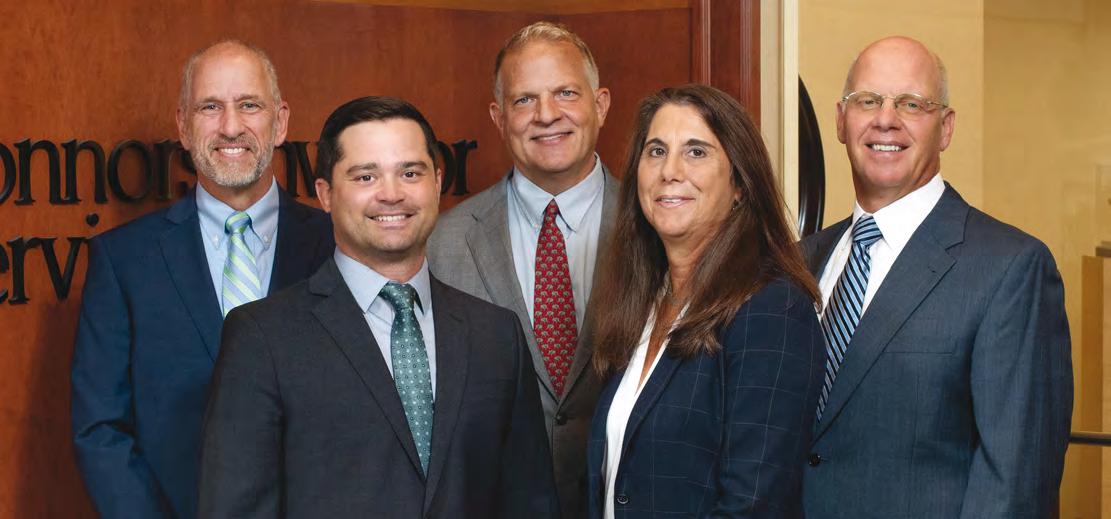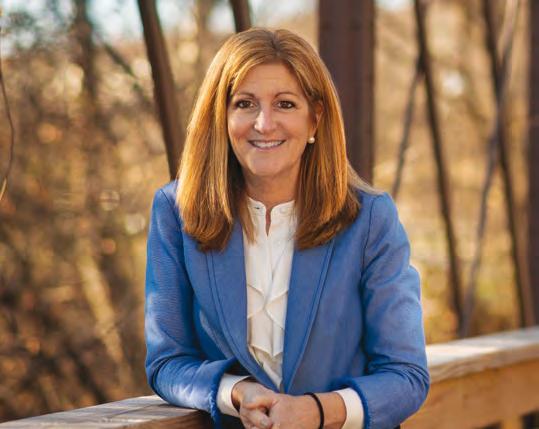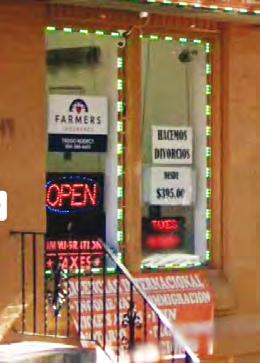
4 minute read
Confidence for the long term.
Our long-term perspective and counseled insight provide the confidence investors need in today’s challenging environment. As a registered investment advisor, our fiduciary responsibility is only to you and the best interests of your investments.
Count on our qualified professionals for the trust, tenure and talent you can take confidence in—for the long term.
Smith Bukowski is welcoming applications for an experienced Litigation Attorney with a desire to establish a long-term relationship with our firm and the communities we serve.
We are located in Wyomissing, Berks County, Pennsylvania. We are a general practice firm representing businesses and individuals throughout eastern Pennsylvania in practice areas that include civil litigation (in state and federal courts and administrative agencies), business transactions and counseling, real estate and land use issues, and estate planning and administration. Other practice areas and information about our firm can be found at our website: www.SmithBukowski.com. The ideal candidate will have five or more years of litigation experience. Salary and responsibility will be commensurate with experience, but we have every reason to believe that the ideal candidate will earn an annual salary ranging from $100,000 - 150,000.

To apply, email your cover letter, resume, and a writing sample to our Firm Administrator at KKoslesky@SmithBukowski.com.
Schuylkill River Greenways wanted help with the preservation and revitalization of the river and a 120-mile trail alongside it, they looked to Tompkins because of our shared commitment to traditional values and economic innovation. | tompkinsbank.com
In Latin American and some European countries, a public notary must be a lawyer before obtaining a notary license. Hence the confusion. Individuals from countries where notaries are attorneys are easy prey. Upon seeing a title such a “Notario Público” or “Notario” sign or advertisement, an individual from one of those countries is likely to believe that they are dealing with a lawyer. Reading’s population is predominantly Latinx, and, as a result, many public notaries take advantage of those who, simply put, do not know better.
I do recognize that the issue is not one of just misrepresentation by notaries but also one of access to attorneys. Language barriers and affordability of legal services are obstacles that lure Latinx members of our community to public notaries.
In 2013, the Revised Uniform Law on National Acts (RULONA) was signed into law with language that specifically addressed fraudulent business practices employed by many Public Notaries in minority and underserved communities. The law prohibits notaries from advertising as “Notario Público” and “Notario.” Specifically, RULONA makes clear that a notary cannot assist persons in drafting legal records, give legal advice, or act as an immigration consultant.
In 2015, the City of Reading passed an ordinance requiring notaries to post visible notices stating that they are not lawyers and are not certified to give legal advice or represent clients.

Despite the City of Reading’s ordinance and RULONA, many, many public notaries utilize their license and title to perpetuate fraud and engage in the unauthorized practice of law. Some go to the extent of not just advertising that they do “Divorce from $395” but also help with “Pro Se Document Services, Divorce, Deeds, Wills, QDROS, Contracts & More Legal Plans.”
Historically, the Berks County Bar Association and the Pennsylvania Bar Association have taken steps to educate individuals in the community and the public notaries. Both associations have referred matters to the Attorney General’s office. Over the years, we have partnered with churches and the Latino Chamber of Commerce in providing education as to the scope and limits of public notaries.
In 2005, Jill Scheidt filed suit on behalf of the BCBA against a notary who had been practicing law. As a result of Jill’s work, the court fined the notary $5,000. In 2008, a city notary was prosecuted but was found not guilty by reason of insanity on charges of unauthorized practice of law.
Jill Scheidt, who has served as Chair of the Unauthorized Practice of Law Committee in our Bar Association and Vice Chair of the PBA’s Unauthorized Practice of Law Committee, explained in a 2014 interview with the Reading Eagle that the problem is not only the notaries but also driven by the clients who turn to the notaries for legal services.
She is right. In each of the complaints described above, our members have asked the victims to come forward and report this crime. Too often, the clients are reluctant to cooperate despite the fact that they spend more money to have a licensed attorney clean up the mess created by a notary.
The unauthorized practice of law is not limited to only notaries. While these cases are often seen in Landlord Tenant and Family law matters, it is a problem that affects all practitioners. Don Smith wishes he could perform a citizen’s arrest! Recently, he had a case where a “beneficiary trustee” represented the landlord. After arriving late for the arbitration, the Trustee demanded a jury trial. And then erroneously filed several motions and other pleadings. Don questions “Should I be filing an answer to these frivolous motions? A damn headache!”
And yes, while Don did not pursue the citizen’s arrest, his point is well taken. How often will we as lawyers, along with our clientvictims, continue cleaning up the messes made by these individuals who have no business taking clients’ money to provide legal assistance without a license in Pennsylvania? Notaries and other non-lawyers do not carry malpractice insurance and, generally, are unaccountable when they make mistakes that may deprive clients of property and certain legal rights.
So, what more can be done?
When I opened the column, I noted that my personality is action driven, yet I’m hard-pressed to find a solitary action that will solve this complex problem. We truly need the individuals who are directly affected by this fraud – the victims – to come forward and report the conduct every time it occurs, not just a few times every few years. Attorneys also need to be vigilant. We need to take the extra time to explain to victims the process of reporting violations of Reading’s ordinance and the RULONA advertising restrictions not just to the Bar Association but to local police, the district attorney, and even the Pennsylvania Attorney General.
Yes, we need to handhold the client, show them they can trust the system, and help them report these abuses and unauthorized practice of law. Community awareness is key, and at the bar association, we will continue providing community outreach and education on public notary fraud. However, having victims being able to share their stories with other community members and with the authorities is even more important.
It is incumbent on all attorneys to respect our profession enough and to appreciate the value we provide in representing our clients enough to take extra time and assist individuals in reporting the unauthorized practice of law.










